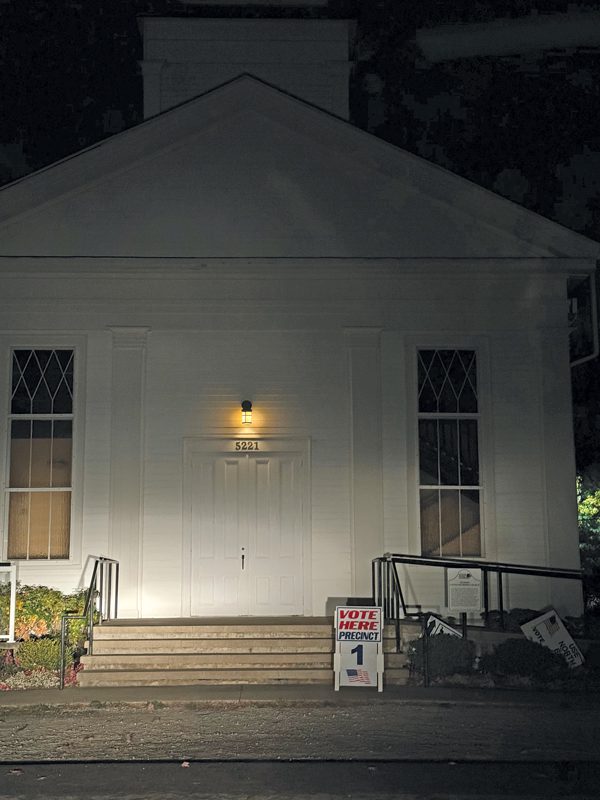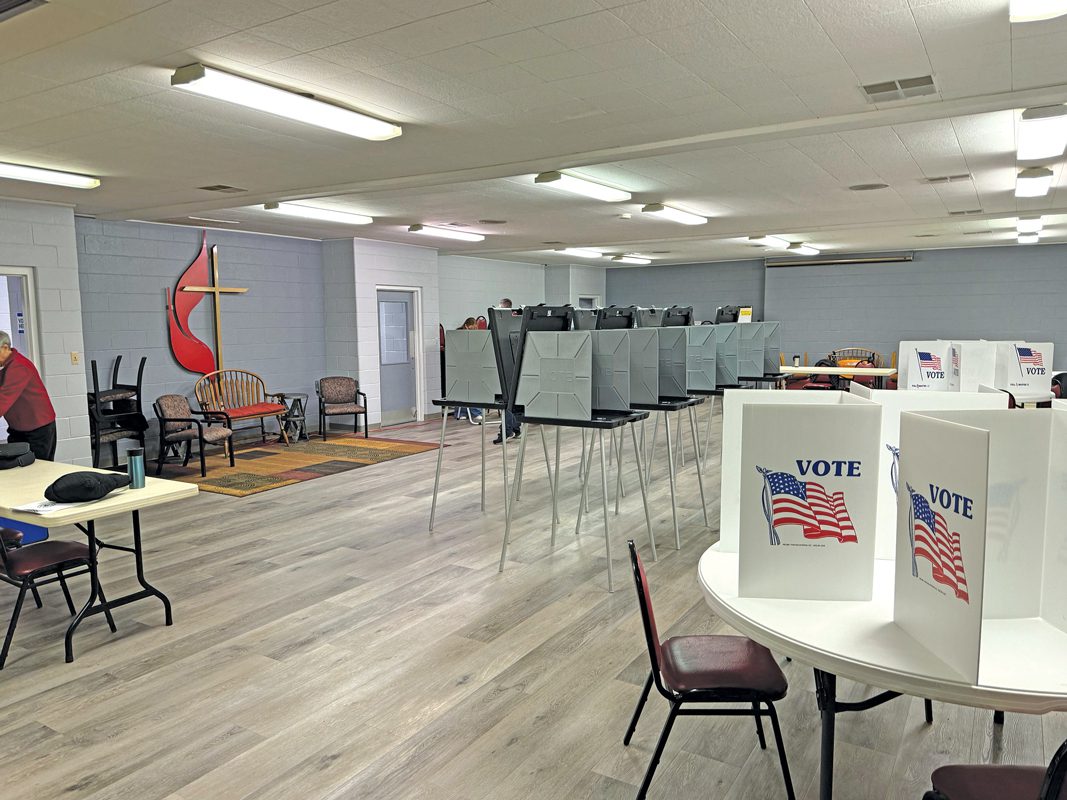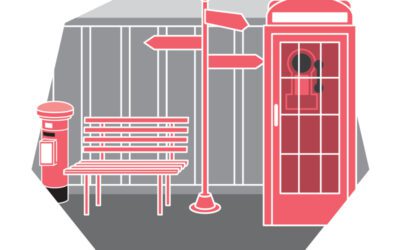The young man rolled into the precinct in a wheelchair with his parents at his side. He struggled mightily to grip the pen as he filled out his application to vote. Still, he handed it to my colleague along with his driver’s license. She verified his ID, then gave it to me to assign him a ballot. I let him know we had a terminal with a touch screen that he could use instead of filling out all those little boxes by pen.
“No,” he replied firmly, “I want to do this by hand. It’s important.”
It took him forty-five minutes, but he filled out his ballot with enough precision to satisfy the tabulating machine. He yelped with delight when it sucked the long paper out of the sleeve. Pride obvious across his face, he asked his father to affix an “I voted” sticker to his shirt.
That’s the most honorable answer to the question I was asked by many people: Why did you sign up to be a poll worker on Election Day? I did it to see another side of our process and to make sure that every citizen got to vote in the manner of their choosing.
Truth be told, though, I had a less noble reason. For the first time in more than thirty years, I was a journalist without an assignment on Election Day. From the night I covered Jim Edgar’s first election as Illinois governor in 1990 as a freshman at Northwestern, I’ve always been reporting on some race or other as votes came in.
In 2000 at the South Florida Sun Sentinel, I was asked to be on hand to cover any voting problems that might arise. Usually nothing much happened, but that year, as you may recall, Florida went a little bit haywire. I became the first journalist to write about the “butterfly ballot” that confused thousands of Democrats in Palm Beach County into accidentally voting for the self-described “paleoconservative” Pat Buchanan.
This year, I haven’t been covering politics much because I’ve been busy tending to my son’s special needs. Still, it seemed wrong to have nothing to do on Election Day, especially when we kept being told that the presidency might come down to a handful of votes in Michigan. It was unlikely that a precinct in Washtenaw County would be the fulcrum of history, but I figured my experience could inform future work if, as happened in 2020, sore losers tried to scapegoat poll workers and cast doubt on the integrity of the voting system.

There was an eeriness to the scene when I pulled up at 6 a.m., the “Vote Here” sign illuminated by my headlights and a lonesome door light in the predawn darkness. | Photo by Steve Friess
It was with these competing thoughts in my head—wanting the election to go smoothly but knowing it would be good professionally for me if it didn’t—that I pulled up to the Dixboro United Methodist Church at 6 a.m. There was an eeriness to the scene, the “Vote Here” sign illuminated by my headlights and a lonesome door light in the predawn darkness.
This was actually my second time as a poll worker or, more formally, an election inspector. During the summer, I applied in Superior Township, where I live. I’d taken a GOP ballot in February’s presidential primary, and they needed people to balance out the party affiliations in an area where Republicans are scarce.
When the clerk asked my party, I told her the truth: I’m an independent. That was good enough. I completed the online training, attended a preelection meeting, and on August 6, I helped greet about 300 voters at the Superior Township Hall.
It was an excellent dress rehearsal for the general election. My job was checking IDs—which I did until the woman assigned and trained to run the electronic poll book fell ill and left. I’d been watching and picked it up quickly, so I tagged in.
The electronic poll book (EPB) is the database of all registered voters in the precinct. It told me whether, as of that morning, they’d requested and/or returned an absentee ballot, voted early in person, or not voted at all. Some voters also show up at the wrong polling place, and if they are registered in the township, I could see that and tell them where they needed to go to vote.
Assuming all was kosher—and in both elections, I never encountered anyone trying to vote more than once—I’d enter the number of the ballot that my coworker had ready. I tried really hard to make it fun and friendly, paying attention to people’s details so I could make small talk like, “Ooh, born on the Fourth of July!” or “Hey, happy birthday four days late! Sorry I forgot!” Assigned to Precinct 5, which includes my subdivision, I enjoyed the confused looks when my neighbors saw me on the other side of the table.
Running the EPB was a promotion: I received $18 an hour, while everyone else but the precinct chair earned $16. And with that bump, I was assigned to Precinct 1—the part of Superior Township that most often has Ann Arbor addresses.

The empty hall filled quickly: A few dozen people were waiting by the time we opened at 7 a.m., and by 10:30 a.m, we were in full Lucy-in-the-chocolate-factory mode. | Photo by Steve Friess
Election Day began in the church kitchen. We all took oaths to uphold the Michigan Constitution, then cracked open manuals of painstaking directions.
My pre-poll task was to get the laptop with the EPB up and running. There was a momentary panic when the passwords didn’t work, but by 7 a.m. we were ready to welcome the few dozen people lined up outside.
Our first few hours were so busy that by 10:30 a.m., we were in full Lucy-in-the-chocolate-factory mode. Voter applications and ballot slips piled up, every voting booth was occupied, and we were all feeling delighted about the turnout.
The only time we paused was when one of us noticed either a very fresh young face or a birth year of 2006. “Is this your first time voting?” we’d ask, and if so, we’d all whoop and cheer. There were probably about fifteen of them, and we’d later regret not keeping a tally. It felt important.
Our team forged a wonderful camaraderie. Partisan conversation among election inspectors is forbidden; we were instructed in training never to even utter party names, lest someone infer a bias from the order we say them. Voters, too, are not permitted to talk politics or show indication of partisanship; if anyone had arrived wearing a Kamala button or a MAGA hat, we’d have instructed them to put it away. No one did, although we did tell one guy toting a Democratic Party flyer to put it away until he was in his booth.
Once we got in the groove, the work was pretty easy. At our rural, overwhelmingly Democratic precinct, neither party bothered sending anyone to watch or challenge voters. The trickiest situations arose when the EPB showed a voter had received but not returned an absentee ballot. We sorted those out by calling the township clerk to ensure the ballot had not been returned and to instruct them not to count it if it did arrive.
Two people showed up who weren’t registered; we sent them to the township hall to do so. And sometimes people spoiled their ballots, usually by voting for too many candidates in one race. The ballot numbers were noted in the EPB as no longer in use, and they were issued new ballots with new ballot numbers.
Oh, and there was the fascinating case of the guy on Berry Rd. All of Superior Township’s Precinct 1 is in the Ann Arbor School District—except one fellow whose forty-acre property is within the boundaries of Ypsilanti Community Schools. Even his parents, who live on twenty acres next door, are in AAPS.
I was told about this peculiar situation before we opened and figured the odds were low that that one voter would even show up. Then he did, and when it tripped the alert in the EPB to give someone a different ballot, it felt like I’d met a unicorn. These are the geeky moments poll workers live for.
In the end, I was struck by how well-designed and redundant the voting process is. When we were at our most frenzied, I wrote the wrong ballot number down on a slip by mistake. That could easily have thrown off the final count, if two other people hadn’t looked over my work and caught the error. The sincerity and earnestness with which everyone took their tasks was nourishing to anxious souls worried about the health of our democracy.
And there are many anxious souls these days. The two most common things we heard from voters were expressions of gratitude for our “service” and inquiries about whether we’d been busy that day.
I took the first comment as a show of support in an era when poll workers have been insulted and attacked by sore losers. The second seemed to be an attempt to gauge how healthy our democracy is.
That answer is complicated.
By noon on Nov. 5, we’d served more than 250 “customers,” as I jokingly called them, a pace of fifty an hour. Then the deluge abruptly slowed to a trickle; the lunchtime and after-work rushes we expected never materialized. My fellow poll workers seemed dispirited by this, and some voters commented that the turnout seemed low.
I bucked everyone up with some quick research. Of the precinct’s roughly 1,900 eligible registered voters, Michigan’s election dashboard showed that at least half had already voted either absentee or in person before Election Day. At most, I calculated, we could expect about 950 voters. We’d need only 475 to hit 75 percent turnout.
In the end, we did slightly better than that: The precinct finished at about 76 percent turnout.
Still, we saw just one voter between 7 p.m. and 8 p.m., when the polls closed. Most people who wanted to come in person—including about a dozen who’d filled out their absentee ballots but wanted to personally feed them to the tabulator—did so earlier in the day. I wouldn’t be surprised if, in my lifetime, it’s deemed unnecessary to spend the money to keep the polls open a full thirteen hours when most people prefer other voting methods.
If that’s the case, then I’m grateful to have done this while I could. Poll workers represent the very best of America. It may be the only place in the political system where Republicans, Democrats, and independents still set aside partisanship for something more important—to keep the system functioning safely and honestly.
As a journalist, the lack of controversy or drama made for a less exciting story for me.
As an American, I’m good with that.




